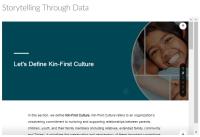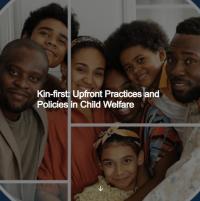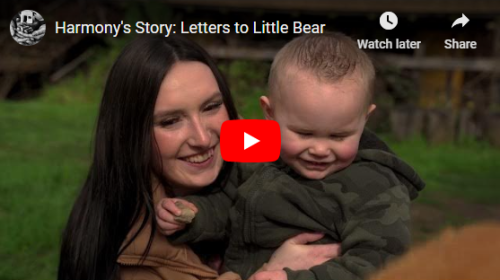Transforming the lives of California’s youth and families
The Center for Excellence in Family Finding, Engagement and Support assists county child welfare agency efforts to keep youth who must be removed from a parent connected with their own family members. We provide statewide, culturally appropriate training and technical assistance to county child welfare and probation departments, behavioral health, and other child-serving stakeholders, including tribal partners and service providers, to enhance their practices, policies, and efforts for family finding, engagement and support.
The Center is powered by the California Department of Social Services and the Human Services team at UC Davis Continuing and Professional Education, and is guided by the Center for Excellence (CFE) Advisory Committee
Why Kin-first?

Kin-first culture refers to an organizations’ unwavering commitment to nurturing and supporting relationships between parents, children, youth and their family members (including relatives, non-relative extended family, community and Tribes). It prioritizes the preservation and permanency of these important connections, such that children remain rooted in their care and love. Kin-first culture gives parents, families and communities the opportunity to heal from trauma together. Moreover, a kin-first culture values cultural permanency, recognizing that "there is no more culturally relevant resource than family.”
(Washington Catholic Community Services, 2023).
The Center for Excellence Vision

Our vision is that every child finds solace and safety within the loving embrace of their family, especially during times of separation from their parents. The Center for Excellence is dedicated to ensuring that children remain unified with their families, communities, and Tribes.
Guided by our deeply held values and the empowering principles of the Integrated Core Practice Model, we aspire to cultivate lasting change in the child welfare system. We believe that children's well-being is best served when they remain with their parents, or when safety concerns arise, live with their family, which includes relatives, non-relative extended family, community and Tribes. It is our belief that this path is the surest way to mitigate trauma, promote healing, and ultimately achieve equity in our communities.
Racial equity is not just a commitment; it's at the core of our work. We are unwavering in our resolve to eradicate the disparities and disproportionality faced by Black and Native American children and families within the child welfare system, striving for a more just and equitable future.
Nurturing Stability: The Impact of Kin-first Care
Our commitment to a kin-first approach shapes a culture that prioritizes family bonds. And our approach is a data-backed success story of how embracing kinship culture has led to remarkable outcomes for children and families in California. Today, we present an insightful infographic that unveils the powerful influence and benefits of kin-first culture.

Data analysis has shed light on the notable advantages of kinship foster care for children, revealing a higher likelihood for them to stay with their initial placement. The research highlights a significant trend wherein children in kinship foster care exhibit remarkable stability, with a lower rate of reentry into the foster care system within the crucial 12-month period following their initial exit. The data also highlights a positive outcome for sibling relationships, as children are more likely to be placed with their siblings, fostering a sense of continuity and familial connection. These findings highlight the importance and effectiveness of kinship foster care in providing a supportive and stable environment for children during a critical time in their lives.
The impact of kinship foster care extends beyond placement stability, significantly influencing the emotional well-being and overall development of children. Placing children in kinship care not only fosters a sense of belonging but also contributes to a reduction in trauma experienced. This sense of belonging, rooted in familial connections, has been linked to notable improvements in positive mental health, with children exhibiting resilience and a decreased likelihood of experiencing behavioral issues. The supportive and nurturing environment provided translates into tangible benefits in education, as children in such placements often show improvements in academic performance. The overarching theme of stability, both emotional and environmental, reinforces the idea that kinship foster care positively shapes the lives of children.

The data and insights into kinship foster care affirm its pivotal role in transforming the trajectories of children in need. In recognizing the profound implications of kinship placements, we pave the way for children, armed with a sense of belonging, to navigate life's challenges with strength, purpose, and the support of a loving, stable family.
Learn More and Explore
Classes, Webinars & Events
Microlearnings
About the Series
Browse by topic
Storytelling Through Data

Participants will deepen their awareness and understanding of Kin-first Culture through engaging scenario videos and data narrative illustrations. The goal is for you to understand the importance of the Kin-first Culture and how to apply it effectively in your work environment.
Kin-first: Upfront Practices and Policies in Child Welfare

Explore legislative and practice requirements that foster Kin-first cultures within child welfare. We’ll dive into the value of integrating the laws in a meaningful way so that children and families can experience better outcomes. By the end of the microlearning, you will be able to identify and appreciate key family findings, engagement and support legislation and practices.
Leading Transformational Change Using the Water of Systems Change Framework

Explore how the Water of Systems Change Framework can be applied to strengthen family engagement and to build a kin-first, kin-always system. Additionally, we will identify some of the barriers that impede this transformation, equipping you with the knowledge to overcome these challenges effectively.
Toolkits

Bench and Bar Toolkit
Now Available Online

Kin-first Policy Guide Toolkit
Now Available Online
Additional Toolkits Coming Soon!
Consultation and Technical Assistance
The Center for Excellence in Family Finding, Engagement and Support offers coaching, consultation requests and technical assistance to county agencies and service providers who are part of the California Children and Youth of System of Care.
Access the TA and Consultation Form.
- Tribal Funding Office Hours
In partnership with the Office of Tribal Affairs, CDSS is offering technical assistance hours to provide Tribes with assistance in developing and implementing the funding programs. We will be available for questions, idea sharing, and support around the following programs:
• Tribally Approved Homes Compensation Program (TAH) – TAH@dss.ca.gov
• Excellence in Family Finding, Engagement, and Support Program (EFFES) – CenterForExcellence@dss.ca.gov
• Flexible Family Supports and Home-Based Foster Care Program (FFS) – FFSFunding@dss.ca.gov
To request a date and time for office hours, please contact the program you'd like to reach at their respective addresses above.
Family Stories
How Kin-first Culture Helps Families Thrive: Harmony's Story
- Download the accompanying study guide to review with your teams.
- Access the short format version (runtime: 3 min. Ideal for meetings)
Kin-first Culture Preserves and Protects Families: Crystal's Story
Download the accompanying study guide to review within your teams.
CFE News and Announcements
Counties & Tribes Committed to Enhancing Family Connections and Support
We are proud to recognize the following Counties and Tribes that have committed to enhancing family connections and support systems through the Excellence in Family Finding, Engagement, and Support Program. By opting into the program, these communities are prioritizing innovative, family-centered approaches to strengthen relationships, improve outcomes, and create lasting support networks for children, families, and communities.
How Kin-first Culture Helps Families Thrive: Harmony's Story
Watch the latest installment in our Family Stories series! You can also now access the full series on YouTube.
- Download the accompanying study guide to review with your teams
- Access the short format version (runtime: 3 min. Ideal for meetings)

Kin-first Systems Spotlight: Model Programs

Program Spotlight: Kin-first Accelerator Program
The Kin-First Accelerator Program is a collaborative effort led by the California Department of Social Services to intensively support counties in prioritizing kinship care, improving child welfare outcomes statewide. To learn more, download the PDF below.

Kin-first Accelerator Program PDF
Click to download PDF
Additional Resources
Model Programs
The Center for Excellence recognizes the many efforts of programs to keep children, families and communities together. As part of the Excellence in Family Finding, Engagement and Support funding program, counties are encouraged to implement model programs, or programs that have been vetted by the Center for Excellence. The following programs have expertise in family finding, engagement and support.
Alia Innovations
In 2016, Alia was formed with sights set on transforming all organizations across the country who are entrusted with the welfare and wellbeing of children. Alia believes that you must begin with gathering and sharing knowledge and creating a sense of urgency for systemic change. Alia partners with agencies across the U.S in short and long-term engagements, partnering with early adopters and innovators in the field of child welfare to dramatically improve outcomes for youth and families and to create meaningful, sustainable change. Alia builds deep, lasting relationships and customized services, supporting partners through all phases of work to create sustainable, meaningful change. In addition, Alia provides Intensive Permanence Services (IPS), an innovation award-winning service designed to reestablish permanent familial connections to those youth who have been disconnected from family through placement(s) in out-of-home care. IPS works by having a single, highly trained specialist guide the youth through a proven process to heal from trauma they have experienced. The 4 stages of IPS include, Trusting, Healing, Connecting and Supporting. It takes between 18-24 months to complete all four stages.
- For additional information, please visit the Alia Innovations website.
Catholic Community Services of Western Washington-Family Behavioral Health (CCSWW): Family Search and Engagement
CSWW provides consultation and support for private organizations, non-profits and State and County jurisdictions implementing Family Search & Engagement (FSE) which is a set of practices designed to locate, engage, develop, and support family resources for youth. A major goal of this practice is to move youth from a place where they don’t hear “I love you” to a place where they can hear it and feel it every day. This comes from family, relatives, and others who love them. Frequently youth are involved in the child welfare system, have experienced multiple placements with non-relatives and have lost contact with their extended family members. FSE partners with child welfare services (CWS) expanding beyond family finding efforts focusing on engagement, with the intent to increase identity, belonging and permanency.
- For additional information, please visit Catholic Community Services of Western Washington
Cultural Brokers, Inc.
Cultural Brokers work with families involved with or at risk of being involved with the child welfare system. Cultural Brokers’ goal is to increase the overall well-being for at risk children and families by providing culturally congruent services that will enable them to successfully navigate the various government agencies and programs as part of their efforts to address their needs. Cultural Brokers aims to reduce disproportionality and disparities within the Child Welfare system and empower families by
recognizing, supporting, and developing their strengths and capacities. Cultural Brokers are embedded in the communities served and have relevant lived experience serving families from their community. Cultural Brokers leverage their knowledge and experience as a point of connection to better engage and empower parents and families. A Cultural Broker accompanies the responding social worker on the initial response and assists with culturally informed family finding. Cultural Brokers play a critical role in ensuring that children who do need to be removed from a home can be placed with family members rather than into traditional foster care.
- For additional information, please visit Cultural Brokers Inc.
Family Finding™
Family Finding™ is a framework developed by Kevin Campbell to engage the support of relatives and others who care about children, youth, and parents involved with Child Welfare, Children’s Mental Health, and Juvenile Justice systems. Family Finding ™ is currently listed as a Level 3 (Promising Research Evidence) by CEBC. Family Finding ™ Is manualized for practitioners and includes a separate manual for Supervisors and Managers. With significant impact, Family Finding ™ and Upfront Family Finding have been implemented in Los Angeles and Ventura Counties in California. Implementation of Family Finding is supported with online access to practice manuals, the development of internal staff and community partners who become licensed as Family Finding ™ Coaches, and Mentors authorized to provide local and internal training, support, and practice supervision within the organizations. Initial coaches, mentors, and staff training are provided in-person or virtually by Kevin Campbell and Elizabeth Wendel at Pale Blue. Family Finding ™ has been successfully implemented by governments, First Nations, and non-government agencies in North America, Western Europe, Australia, and Cambodia.
For more information on Family Finding:
- Visit the Family Finding website.
- Access the Family Finding: Data & Practice Review of the Literature.
Kinnect to Family
Kinnect is a nonprofit dedicated to timely kinship connections and inclusive support networks for children, young people, and families. Kinnect to Family, a program of Kinnect, involves intense, specialized family search and engagement strategies and kinship supports. The program believes all children have caring and capable extended families that are willing to support their kin. Specialists work alongside traditional caseworkers to identify and engage kinship caregivers and connections for children and youth. With a goal of identifying at least 80 extended family members for each child, Kinnect to Family finds 150 people on average! Specialists develop family support plans with families to ensure stability, eliminate barriers, and create networks of support. The program’s enhanced model provides families with multiple access points to Kinnect to Family programming to prevent entry and reduce the time that children and youth spend in the child welfare system. The program specialist role is one part of a broader Kinnect to Family coaching and technical assistance model that increases success, ensures accountability, and provides better outcomes.
- For additional information, please visit the Kinnect to Family website.
Wendy’s Wonderful Kids, Dave Thomas Foundation for Adoption
The Dave Thomas Foundation for Adoption is a national nonprofit public charity that is committed to dramatically increasing the number of adoptions of children waiting in North America’s foster care system. Through its signature program, Wendy's Wonderful Kids, the Foundation supports the hiring of adoption professionals, also known as recruiters, to find permanent families for children and youth. Recruiters use an evidence-based, child-focused recruitment model and begin their search within a child’s familiar circles of family, friends and neighbors and then reach out to the communities in which they live. If family reunification is a safe option, a Wendy’s Wonderful Kids recruiter will explore it … always.
The child-focused recruitment model is focused on:
- Finding the right family for the child,
- Respecting a child’s voice, privacy and dignity, and
- Rooted in the belief that every child is adoptable.
For additional information, please visit Wendy’s Wonderful Kids.
ACL and CFL for Family Finding and Engagement
All County Letters
- All County Letter 24-75: The purpose of this All County Letter (ACL) is to announce updates to the Excellence in Family Finding, Engagement, and Support (EFFES) Program. These changes enable counties that do not have a full-time family-finding worker due to insufficient caseloads to request authorization from the California Department of Social Services to participate by using a portion of a family-finding worker’s time.
- All County Letter 23-12: The purpose of this All County Letter is to communicate the requirements for participation in the Excellence in Family Finding, Engagement, and Support (EFFES) Program and the provisions available to support implementation through the establishment of The Center for Excellence in Family Finding, Engagement, and Support.
County Fiscal Letters
All Tribal Leaders Letter
- All Tribal Leaders Letter, 25 – 02: The purpose of this letter is to inform participating Tribes, consortia of tribes and tribal organizations of updates to the Excellence in Family Finding, Engagement, and Support (EFFES) program. These changes enable Tribes that do not have a full-time family finding worker due to insufficient caseloads to participate by using a portion of a family finding worker’s time. Notably, these modifications do not affect the Tribes’ existing process for opting into the EFFES program.
- All Tribal Leaders Letter, 23-03: The purpose of this letter is to notify federally recognized Tribes in California or with lands that extend into California (hereafter, Tribes) of the $7.5 million noncompetitive Tribal Set-Aside Funds available for Tribes, consortia of Tribes, or Tribal Organizations that elect to participate in the Excellence in Family Finding, Engagement, and Support Program (EFFES Program) and the provisions available to support implementation through the establishment of the Center for Excellence in Family Finding, Engagement, and Support (Center).
Implementation Resources (Getting Started)
These resources are designed to help your county plan to implement Family Finding, Engagement and support
- Family Finding Data & Practice Review of the Literature (View | Download)
- Family Finding & Engagement Promising Practice, Systems Change (View | Download)
Overview Webinars
- Watch these webinars to learn more
• Watch the Center's Stakeholder Engagement Webinar
• Watch the Fiscal Essentials of Family Finding and Engagement | Presentation slides
- Building a Kin-first System: Tools for the Journey Series
- Access webinar recordings
Our California kin partners, Think of Us, in collaboration with the Government Performance Lab, developed a kin-first webinar series highlighting six actionable strategies that child welfare agencies can use to move the needle on increasing placements with kin and strengthening caregiver supports within their jurisdictions — no matter where they are on their journey to build a kin-first system.
Thanks for visiting!
This page is presented by the Center for Excellence in Family Finding, Engagement and Support. The Center is powered by the California Department of Social Services and the Human Services team at UC Davis Continuing and Professional Education.


